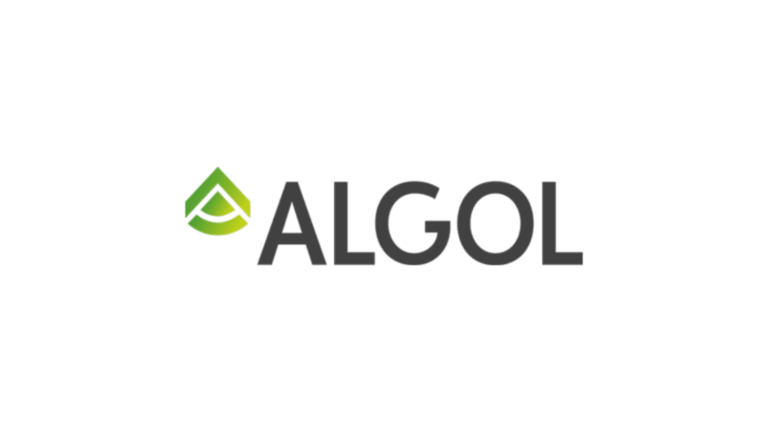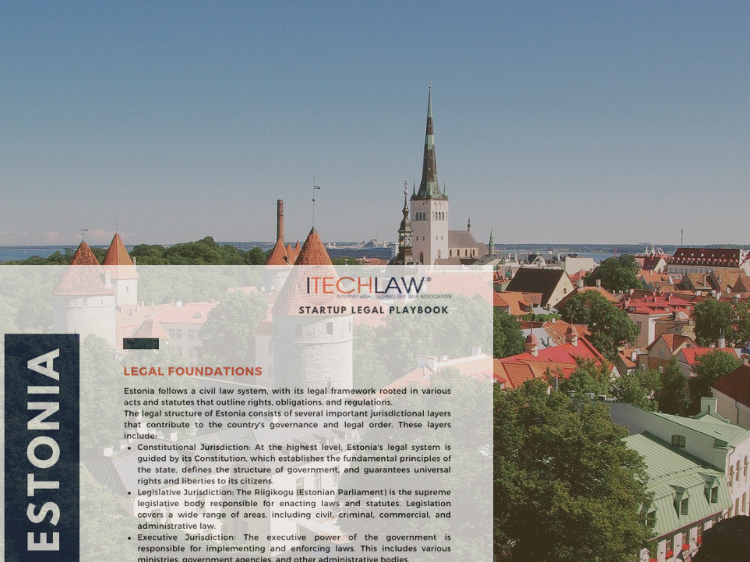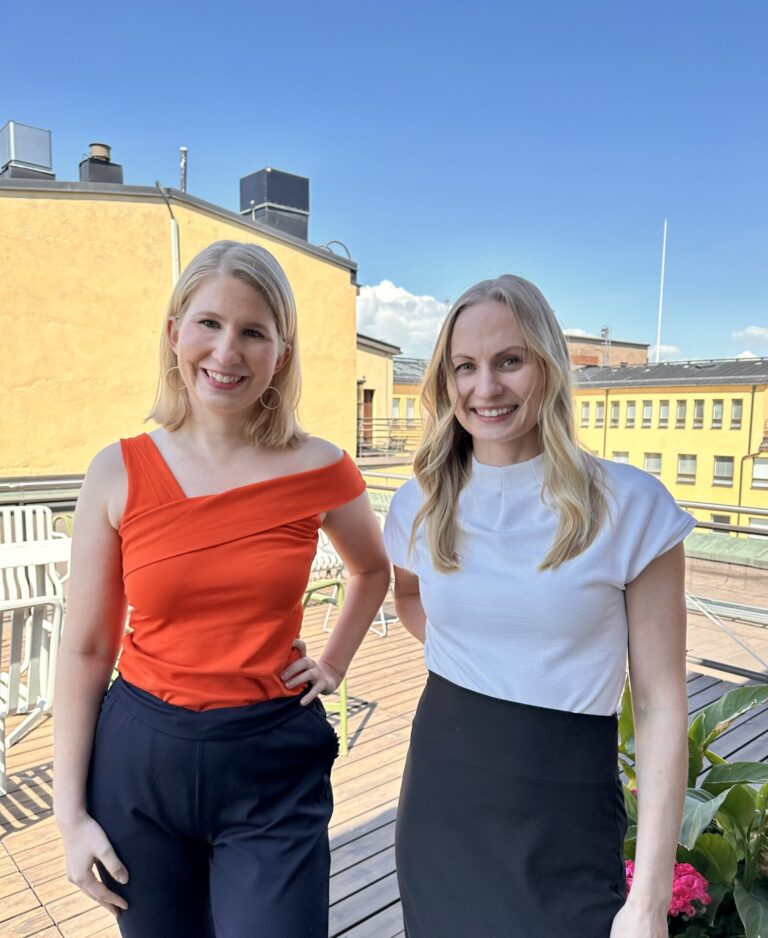
2020 COVID-19’S EFFECTS ON EMPLOYMENT MATTERS
Update of Newsletter 1 April
On the basis of the Danish government’s decision to close down large parts of the country so far until after Easter (13 April) in an attempt to hamper the spread of the coronavirus there are a number of considerations employers need to make. By this newsletter we aim to provide our assessment of how employers and corporations are positioned and should act in this current, unknown and difficult situation and to provide brief information of the various support schemes that government and the Danish parliament have passed.
Ministry of Foreign Affairs’ travelling guidance as per 13th of March 2020 Advice against all unnecessary travelling to:
- Any country in the world.
Advice against all travelling to:
- China: Hubei province
- Italy: The regions Piemonte, Lombardia, Emilia-Romagna, the Aosta valley, Veneto and Marche
- Iran
- South Korea: The city Daegu and the province Gyeongbuk
- Austria: The federal state Tyrol
The National Health Service recommends that one stay at home for two weeks if one after 2nd of March returns to Denmark from the countries and zones listed under the red headline.
On 14th of March 2020 the Danish borders closed for all travellers, who do not have a creditable purpose. Goods will continue to be allowed access to the country. The borders will (so far) remain closed until 13th of April 2020. The Danish government has in an effort as to alleviate the consequences of covid-19 and thereby avoid an overload of the Danish hospital sector in the period 11. And onwards issued a number of recommendations, orders and had new temporary legislation adopted.
These initiatives are in headlines the following:
- Pupils and students at all educational institutions are sent home
- All employees in the public-sector who do not perform critical functions are sent home
- All schools and day-care institutions are closed
- All employers in the private sector are urged to ensure that as many as possible are working from home, are counterbalancing overtime or utilising holiday entitlements, however with due consideration to the maintenance of contractual obligations, e.g. export and performing deliveries
- Limited use of public transport
- Restrictions in relation to visiting nursery homes and hospitals
- Banning indoor gatherings of more than 100 persons
- Additional restrictions when crossing the borders to Denmark
- Temporary changes to the Act on Epidemics (with a sunset clause until March 2021)
o Measures against individuals
o Banning public events, currently (13 March) for more than 100 participants
o Prohibition against the use of public transport
o A duty to inform the police about suspicions of virus infected citizens
Sending employees home
Public-sector employees All employees in the public-sector who dos not perform critical functions have been sent home until 13 April. The concerned shall to the extent possible work from home. If this is not possible then the concerned is sent home on leave with full pay, however they are to utilise as much of their remaining holiday entitlements as possible.
Employees in the public-sector who have not been sent home and do not work from home shall still be readily available for the employer and can be ordered to assist with the performance of necessary public services. By critical functions is meant the personnel in the health sector, the nursery sector, the police, the prison system, the rescue service, meat control and the support for socially vaunrable people.
Employees in the private-sector
The Danish government urge all to ensure that as many as possible work from home, are counterbalancing overtime or utilising holiday entitlements, however with due consideration to the maintenance of contractual obligations, e.g. export and performing deliveries. Furthermore, it is encouraged that physical meetings are held only if it is absolutely necessary and all relevant measures are taken to ensure an appropriate behaviour in the workplace. It is assumed that the maintenance of the necessary utility sector is ensured, including e.g. the markets for food, groceries, pharmaceuticals, energy, drinking water, waste management, telecom and IT infrastructure and the financial infrastructure.
Salaried employees
Pursuant the Danish Salaried Employees Act (section 4) staying home from work is cause for immediate dismissal of the employee, which is exempted only in case of special circumstances. Special circumstances would be illness, which by the way the employee is compelled to notify the employer about. In this connection it is worthwhile noting that it is still the employer who has the right to manage and direct the work. This has not been changed.
The Danish Employee and Competences Authority is of the opinion that if an employee is put into preventive quarantine by the health authorities or own doctor then it will be regarded as permissible absence and the employee will have right to full pay during the quarantine. The same is assumed to be the case if the health authorities or the employee’s own GPD recommend preventive quarantine.
If the employee “puts himself in quarantine” then the employer should enter into a dialogue with the employee about the reason for this and ensure himself that the employee’s behavior does not build on misunderstandings of comments from health-related persons. Based on the information from the employee the employer shall make an assessment as whether the employee’s absence shall be regarded as permittable absence which would entitle the employee to full salary during the absence. If an employee where special circumstances do not apply (e.g. that the employee has a weakened immune system and therefore will risk his/her life and health) refuses to assume work, then it will de regarded as illegal absence and the employee can be dismissed immediately.
If the employer decides to comply with the government’s recommendation – which we view as is advisable – then the employees sent home will in most cases be entitled to salary as under sick-leave.
Employees covered by a collective bargaining agreement
For employees covered by a collective bargaining agreement (“CBA”) it is the rules in the applicable CBA that is decisive as to what extent the employee having been sent home is entitled to receive wages during the absence period.
Other relevant regulation
With reference to the rules in the Working Environment Act an employer can demand that employees who have returned from overseas stays home as they can otherwise potentially expose the other employees for transmission of corvid-19.
Childcare
Even if an employee is not able to get his/her child in childcare the employee is compelled to meet at work. In other words: it is not an excusable absence that one cannot get a child babysit.
Business travelling
An employee is obligated to do any business travelling to destinations that is not covered by the Ministry of Foreign Affairs’ recommendations not to visit. If the employee refuses to do so it may have consequences for the employment, provided the journey has a justified purpose. It is recommended that both the employer and the employee keep themselves updated about the Ministry of Foreign Affairs’ travelling guidance. An employee who cannot return home from a business travel has a right to receive full salary, because it is the employer who is liable for the delay of the business travel. If a business travel drags out as a consequence of the coronavirus, then the employee is entitled to salary during the entire duration of the journey. Save the above it is now virtually impossible to travel, so the issue is hardly relevant these days where large parts of the world has been closed down and airlines grounded.
Leisure travelling
An employer neither can nor is allowed to decide where an employee goes on holiday, irrespective of whether it is to a risk zone or not. Many employers do however discourage their employees to travel overseas. When the travel has ended the employer can send the employee home into quarantine if the management deems that the employee in question poses a risk of contagion towards the other employees at the workplace. If an employee disregards warning of travelling and therefore is to be in 14 days quarantine when arriving home, the employer can then consider the employee’s absence as unjustified and dismiss the employee with immediate effect. If an employee has not been infected by the virus and the employee does not work, then he/she shall not receive salary. Whereas, if an employee has been contracted by the virus or there is a reason for suspecting that employee has been contracted, the employee will have a right to receive payment as under sick leave. It is the employment contract or the CBA that decides whether the employee has a right to payment during sick leave.
GDPR rules
In order to be able to introduce relevant precautions at the workplace it is necessary that the employer has knowledge about the travelling activity of the employees.
Gathering and storing of such personal data shall of course be carried out in compliance with the rules for personal data protection.
It shall amongst other be ensured that the processing of data is in compliance with the principles set out in the EU GDPR regulation, including the principles of legitimacy, reasonableness and transparency. Only personal data that are necessary for the employer to prevent transmission of virus shall be processed by the employer.
The purpose of gathering personal data shall be legitimate and impartial.
The processing of sensitive personal data including the health of the employees in relation to potential or actual transmission of covid-19 virus will in the outset require the express consent of the employee. In certain situations, the processing can be carried out on another basis, e.g. that the employer’s duties under the working environmental rules.
An employer can be requested to or have an own legitimate interest in disclosing the information about employees contracted with virus to third parties. It could be to colleagues, customers, partners, authorities or others. In such case it must be assessed whether such disclosure is impartial, legitimate and necessary and on the basis of which legislative rules such disclosure is legal. In case of disclosure the employees concerned shall receive information about the disclosure, the recipients or categories of recipients of the personal data.
Bail-out package to private businesses
In order to suppress the transition of the coronavirus and to avoid a collapse of the National Health Care sector the Danish Government has introduced several restrictions on individual citizens and businesses, including (but not limited to):
- Banning indoor and outdoor gatherings of more than 10 persons
- Banning public events
- Closing of certain stores, shops, shopping malls, restaurants, bars, sports facilities, etc.
These initiatives are affecting businesses considerably, and thus the Danish government has with the support and consent of the Danish parliament promulgated legislation that allows the Danish government to offer a number of support schemes to all sorts and sizes of businesses.
Save the above, it should be underlined that neither the contractual obligations between two parties has changed because of the coronavirus crisis nor has the legal framework, including (but not limited to) the employment contracts.
The supporting schemes that may be relevant for the majority of businesses are the following:
- Temporary salary/wage support scheme
- Compensation for the business’ fixed expenses scheme
- Help to cover loss of sales (directed towards small businesses)
- Compensation for cancelled or postponed public events
- Temporary postponement of the due dates for the payment of
- Withholding of employees’ income tax
- Labour market contribution
- Payment of VAT
Re.:1 Temporary salary/wage support scheme
The purpose of the scheme is to help the businesses to keeping their employees and avoiding laying them off.
The Scheme is the result of a triparty agreement (between the labour market parties, i.e. the employer organisations and the unions and the government) of 14 March 2020. The detailed regulation of this scheme has been set out in an executive order issued by the Danish Business Authority (“DBA”), who will administer the scheme, too.
The scheme is temporary and applicable for the period 9 March to 9 June 2020, only. Only salary expenses (defined as remuneration to salaried employees (white collars)) and wage expenses (defined as remuneration of employees covered a collective bargaining agreement (“CBA”) (blue collars)) that relates to the said period can be compensated through the scheme.
Application for receiving the compensation shall be done online at the homepage of the Danish business Authority (DBA) (Erhvervsstyrelsen) and all businesses that fulfil the criteria will be compensated. The business shall use is NemID, state CVR-no. and the CPR-no. (personal identity number) for each employee.
DBA has open for applications. The criteria for being awarded the compensation are:
- Business that contemplating laying off 30 per cent of the employees or more than 50 employees are covered by the scheme.
- The business must continue to pay full salary/wage to the employees sent home not working, i.e. including pension contributions (if any) and other fringe benefits, if any.
- The employees sent home are not allowed to work for as long as their salary/wage is being subsidised/compensated through the scheme. In this connection it should be emphasized, that this means that the employees shall not answer work related emails and phone calls etc, as the non-working of the employees sent home shall be verified by an independent accountant at the end of the compensation period.
- The compensation for salaried employees is 75% of the aggregated salaries, however maximum DKK 23,000 per full time employee (“FTE”). However, on 30 March this amount was raised to DKK 30,000.
- The compensation for employees covered by a CBA is 90 per cent of the aggregated wages, however maximum DKK 26,000 per FTE. However, on 30 March this amount was raised to DKK 30,000.
- Part time employees are covered by the scheme too, however proportionally to the time they work.
- During the period where the employees are sent home and not working, the employer may not terminate their employment due to financial circumstances affecting the employer’s business.
- Each employee sent home shall utilise five (5) days of accrued holiday or balance overtime equal to 5 days during the compensation period. In the event an employee does not have accrued holidays that can be utilised, the business will not receive compensation for the five missing days neither will the employee receive salary/wage for those days.
Re.:2 Compensation for the business’ fixed expenses scheme
The specific and detailed terms and conditions of this compensation scheme is still to be completed. Nevertheless, its framework is as follows:
All businesses irrespective of line of trade or business format can apply for compensation.
In order to be eligible to receive compensation under this scheme the business needs to have experienced as reduction of sales (turnover of more than 40 per cent caused by the coronavirus situation compared to the same period 2019. Furthermore, the fixed expenses must amount to at least DKK 25,000 and maximum DKK 60 million during the period 9 March to 9 June 2020.
Business that has been ordered to close will be compensated by 100 per cent of the fixed expenses during the period the order of closing is applicable.
Otherwise, the compensation is calculated as a percentage of the fixed expenses as follows:
- a reduction of 40- 60 % triggers a compensation of 25% of fixed expenses
- a reduction of 60 – 80 % triggers a compensation of 50 % of the fixed expenses
- a reduction of 80 – 100 % triggers a compensation of 80 %
The “fixed expenses” covers rent for a leasehold, interest, and expenses which the business is contractually obligated to pay (e.g. leasing fees).
At the end of the compensation period an accountant will have to verify that the fixed expenses have been expensed. The business can receive support to 80 % of the expenses to a certified accountant, provided however, that the application is accepted
Re.:3 Help to cover loss of sales (directed towards small businesses)
The scheme covers business owners who owns at least 25 % of the business and carries out work in the business. The business format is not decisive.
The scheme covers businesses with up to 10 employees, but it is not a requirement that there are employees.
It is a perquisite for using the scheme that the business has a prospect of losing at least 30 % of its sales (turnover) during the period 9 March thorough 8 June 2020 because of the coronavirus outbreak.
The sales shall as a minimum amount to DKK 10,000 per month.
The personal income of the business owner may not exceed DKK 800.000 in the income year 2020.
Please note that it is the business that is compensated and not the individual business owner. The business can apply only once.
The business must have been established prior to 1 February 2020.
When eligible the business can receive a compensation of 75 % of the average monthly loss of sales, however maximum DKK 23,000 to the business owner per month or approximately DKK 69,000 for the whole period 9 March through 8 June 2020.
Please note that use of this scheme cannot be combined with the use of other schemes as one cannot be compensated to the same loss/expenses twice or more.
Please note too that id it turns out that the loss during the period was less than 30 %, the compensation received shall be repaid.
The information of expected loss of sales is given on as a solemn declaration, and the expectation shall be founded upon the sales for the same period 2019.
The text of the scheme is silent about how this is to be verified, but there will most likely be introduced some form of verification procedure. How and when is yet unknow.
The Danish Business Authority opened for applications on 1 April 2020.
Re.: 4 Scheme for compensation for cancelled or postponed public events
Organisers of events that have been cancelled with expected participants of more than 1,000 because of the coronavirus outbreak can apply for compensation. The event shall have been planned to take place in the period as from 6 March 2020 and until 31 March 2020. However, the Ministry of Culture has announced that the period is prolonged to 9 June 2020.
The organiser shall in order to apply for compensation document:
- that the event that was cancelled or which were to be significantly change was to be held in the applicable period (6 – 9. June 2020);
- that the number of expected attendances would have been 1,000 or more or 500 if targeted special risk groups;
- that the event was open for registration for the public before 6 March 2020;
- that the organiser is not compensated by insurance coverage;
- that the expenses to carry out the event have been expensed or that the organiser is contractually obligated to expense/honour them at a later date;
- that the prospective indirect expenses are calculated as a supporting part of a usual pro rate plan of cost distribution, taking into account that at comparable events these expenses have been financed by the income from the event;
- that payment of fee to artists that the business has hired has been paid or the business is contractually obliged to pay it;
- that the tickets sold and for which compensation is sought have been refunded.
- That if the compensation that is applied for exceeds DKK 500,000 a verification from a certified accountant must accompany the application; and
- that if compensation for salaries and wages to employees are applied for then this bar the organiser from seeking coverage of the salaries and wages under other support schemes, e.g. the temporary salary/wage support scheme.
- The organiser cannot claim being blocked by force majeure vis-á-vis to possible sub-suppliers.
The compensation covers only the calculated deficit that the cancellation of the particular event produces. The compensation may not result in a profit for the event organiser.
Re.: 5 Temporary postponement of the due dates for the payment of Withholding tax, etc.
Postponement of payment deadlines for em-ployee withholding tax and labour marked con-tribution (AM-bidrag)
The payment deadlines for so-called “A-tax” (em-ployee withholding taxes) and labor market contri-butions for liabilities arising during the months of April, May, and June are postponed 4 months.
No changes are made to the deadlines for report-ing A-tax and labor market contributions. There-fore, the businesses shall continue to report A-tax and labor market contributions to the tax authori-ties in accordance with current applicable legisla-tion.
Postponement of payment deadlines for on account tax
No so-called “B-tax” (on account taxes) is payable in April or May and the payments are postponed to the two months (June and December), which are currently free from payment.
It is also possible to adjust or cancel the business’ B-tax payments in the preliminary assessment of income at skat.dk, if the business’ profit will de-cline.
Postponement of payment deadlines for
VAT For small businesses, the reporting and payment deadlines for the first six months and the last six months of 2020 are aggregated. This means that the reporting and payment deadlines for the first six months of 2020 is postponed by six months. Subsequently both periods are reported and payed by 1 March 2021.
For medium sized businesses, the reporting and payment deadlines for the first quarter of 2020 are postponed by three months and thereby joined with the reporting and payment deadlines for the second quarter of 2020. This means that the re-porting and payment deadlines for the first quarter of 2020 is postponed to 1 September 2020 for medium sized businesses.
Further, the payment deadline for VAT for large businesses for the months of April, May, and June are postponed 30 days. Large businesses are de-fined as businesses with a yearly revenue subject to VAT, exceeding DKK 50 million.
Increase the maximum amount that can be paid into in the tax account.
Finally, a temporary increase in the amount of credit balance in the tax account has been grant-ed. Until 17 March 2020 the limit was DKK 200,000 and any amount exceeding the limit would be paid out to the business. This limit has now been raised to DKK 10 million.
The increase of the limit is, as mentioned above, temporary and only valid for the period from 25 March 2020 to 30 November 2020. After this peri-od the limit is lowered again to DKK 200,000.
Other country specific measures
Sickness benefit may be paid out from the first day of leave.
The general provision in the Epidemics Act about full compensation to private businesses for losses suffered due to measures enacted in order to hamper transfer of viruses has been changed to a right to confiscation against full compensation. This means that the government is no longer liable to compensate private businesses for the losses they incur due to the restrictions enacted in relation to the current covid-19 outbreak.
In order to secure liquidity in the market the contra cyclic capital buffer has been released whereby the banks will be able to lend up to DKK 200 billion to businesses. Currently, the government will guarantee loans for an aggregated amount of DKK 1 billion to small and middle-sized companies.
Insurance coverage
Business Interruption Insurances does not cover losses derived from the measures imposed by the public authorities with an aim to hamper the spread of covid-19
Redundancy due to bad financial performance
In the event an employer experiences a significant drop in sales, order intake or profit it may justify termination of employees without being considered unjustified dismissals. In the event it concerns a larger number of employees the special notification rules regarding termination of a larger number of employees must be complied with. The employees are still entitled to their individual notice period set out in the Salaried Employees Act or the relevant CBA.
PERFORMING AGREEMENTS
(FORCE MAJEURE)
Denmark is an export nation and many businesses are therefore performing active cross border trading. Already now the covid-19 has affected the international trade in various areas.
A very pertinent question is thus whether a seller or buyer – as the case may be – can escape liability for delay of delivery or receiving goods or services on the basis of force majeure principles.
Non-performance of agreements with customers carries a non-neglectable risk of being met with a demand for damages for the loss which the customer suffers. This applies in on-going trading relationships as in one-time transactions.
Under Danish law the possibility to demand damages for non-delivery of goods or services takes its outset in the agreement between the parties, i.e. what has been regulated in the contract between the parties.
Has nothing been agreed regarding this – which sometimes may be the case – then under Danish law there is a possibility for release of liability according to a general force majeure principle which can be derived from Section 24 of the Danish Sales of Goods Act (“DSGA”) either directly or analogical. In international trade CISG may apply instead and a similar stipulation is then given in Art. 79.
Force majeure is when a party in an agreement due to events of circumstances beyond his control makes it impossible for that party to perform under the contract. This would typically be the destruction of the goods as a result of an unexpected natural disaster, suddenly Imposed restrictions such as a ban on import or export, suddenly emerged warfare, civil revolts or national strikes. The common denominator for these events to be designated as force majeure is that they shall have emerged suddenly and that the seller (or buyer in situations of sudden currency restrictions or international sanctions) could not foresee these and thereby take preventive actions or subsequently overcome the impediment or its consequences by taken alternative measures.
CISG Art. 79 does not mention the type of impediments that may qualify as force majeure but instead makes the qualification that the impediment must be something outside the control of the relevant party.
In Denmark it is very difficult to prevail in a matter regarding release of liability on the basis of force majeure considerations, as Danish case law is very restrictive regarding the concrete use of force majeure. If one desires to claim force majeure one will have to lift the burden of proof that it is impossible to perform under the contract due to the current force majeure situation.
In cases where the parties have included a force majeure clause in their contract and does this clause not exhaust the specific events that can lead to force majeure then it is down to an individual interpretation as whether or not an epidemic outburst of illness can be characterised as force majeure that makes it impossible to honour the contract – at least for the time being. In this connection emphasis will be on the announcements made by the public authorities or international organisations including but not limited to the Danish Health Authority, the Serum Institute and WHO.
As mentioned above it is a paramount prerequisite in order to claim force majeure that the force majeure event is impossible to predict. The swift spreading of covid-19 inside as well as outside the borders of China (Europe is now the new epi centre for transmission of the virus) means that the unpredictability requirements no longer is fulfilled for agreements that are made now or going forward. Magnusson recommend therefore that businesses in agreements that are formed now and going forward considers possible delivery problems, logistic problems, cancellations etc. as a result of the covid-19 virus. Other epidemics can arise, and a force majeure clause should take this into account. Thereby, the business covers a risk to the effect that liability can be shaken off if the covid-19 (or other epidemics) might prevent the performance under the contract.
MI COVID-19 Response Team
At Magnusson we have a Magnusson International COVID-19 Response Team that has already reviewed and advised about concrete agreement related problems that the outbreak of covid-19 has caused. We are on short notice ready do a review of the agreements of other businesses and provide advice of how the business should act and how it secures itself the best way going forward.
Contact

Tom Stener Froberg
Partner / Head of Employment
Employment, Commercial, Corporate and M&A, EU and Competition, Public procurement, Transport
Send me an email +45 82 51 51 00 +45 40 43 18 40
Sam Jalaei
Managing Partner / Head of Corporate & M&A / Head of Capital Markets and Head of Middle East Desk
Corporate and M&A, Banking and Finance, Capital Markets, Commercial, Dispute Resolution
Send me an email +45 82 51 51 00 +45 27 74 05 04









